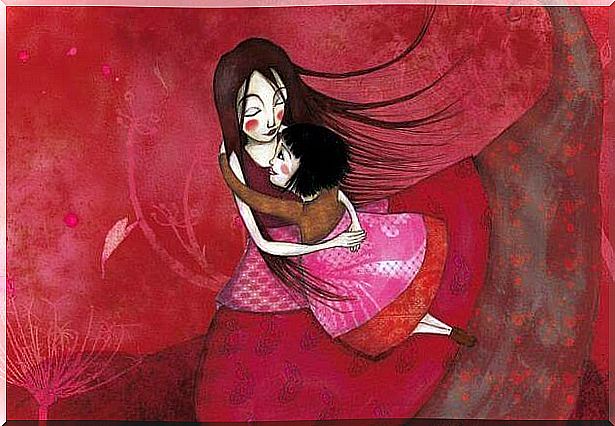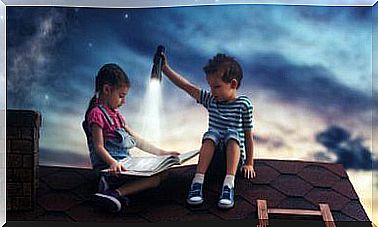You Don’t Have To Hurt To Teach Or Suffer To Learn

To teach the beauties of life you do not need shouting, bad words or harsh gestures. You do not have to suffer to know what joys taste like, otherwise, happiness will seem little more than an unattainable star.
It is possible that your childhood was a scene marked by an authoritarian and severe education. If so, you will know in the first person that far from obtaining good learning, what was left, probably, was the trace of the many emotional deficiencies, the gap of affection and the lack of recognition.
There are those who always like to say that “the best learning comes from suffering”. Actually, this idea is somewhat extreme and cannot be applied lightly. Having suffered undoubtedly teaches us the value of certain aspects, offers us strategies and often tells us which path to take and which to avoid.
Now, life learning is offered by time and experience, but if we start from a secure base, that is, if we start from a healthy childhood, where we know what it is to build strong and happy bonds, we will have a good time. section won. Teaching is not just transmitting knowledge and standards. To teach it is not necessary to suffer, nor to receive shouts and reprimands: teaching is educating in emotions to be strong in life.
Teaching is the art of igniting curiosity

It is clear that none of us count on the magic potion to bring true and lasting happiness to our children. Now, something that we must not forget is that to educate you have to understand, intuit and above all “build”.
Those who have not known happiness in their childhood can only view life with some mistrust and fear. Suffering in the first years of life, far from teaching, limits the correct development of the child. It’s something to consider.
- Growing up in fear means living with a high level of stress and anxiety. A brain with a high level of cortisol will not develop properly and will not seat learning optimally.
- The learning that is assumed in a severe way does not leave a trace, it leaves a scar on the soul that lasts. And every negative emotion internalized in the mind and heart of a child, supposes a lack and a wound for the adult of tomorrow.
- To teach, you don’t have to impose, you don’t have to raise your voice or prohibit: you have to ignite curiosity. Paulo Freire said that teaching is not transmitting knowledge, but creating possibilities for its production. And this can only be achieved through adequate Emotional Intelligence, through respect and sincere affection that always accompanies the child.
To teach you have to educate the heart
Often, we strive to teach children concepts that they themselves can look for in books, on the Internet and that, surely, will not be useful to them tomorrow. We must focus on teaching them to love, to be free, to reflect, to know themselves …
In reality, and although it is true that it is much easier to teach them the multiplication table than to develop their self-esteem, it is something that we should keep in mind every day through strategies such as the following:
- It always promotes a democratic education at home, where dialogue and communication are possible, and where each norm is understood by the child. It is not just about imposing, but about making people understand that at home, as in society and in life itself, there are limits and responsibilities.
- Never forget that the first years of a child’s life are their roots and the way they will understand the world tomorrow. If there are screams, if there is fear, if he feels misunderstood, tomorrow he will be an adult who “seeks to defend himself” from the world.
- Pay attention to the emotional language of your children, intuit how they cope with anger, their sadness, how they interact with other people. It fosters an environment based on trust where there is no arbitrary sanction, ridicule, or irony.

Images courtesy of Marie Descombs, Art Graphic Estele









